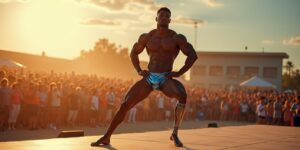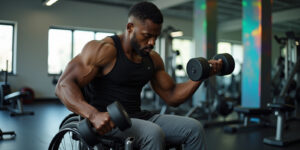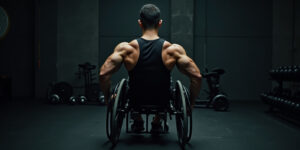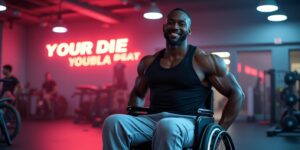While it may seem like an impossible feat, bodybuilders with disabilities have been known to achieve great success. Whether it’s adapting their training methods or using specialized equipment, these athletes are a true inspiration.
When it comes to bodybuilding, there’s no one-size-fits-all approach. That’s why this blog is designed specifically for bodybuilders with disabilities. By reading through this blog, you’ll learn about the different types of bodybuilders and the challenges they face. You’ll also learn how to overcome these challenges and build the body of your dreams. So whether you’re a bodybuilder with a mental disability or a physical one read on and start breaking barriers today!
What is a bodybuilder with disability?
There are many bodybuilders with disabilities out there, and they are just as capable as anyone else of achieving their fitness goals. They have the same dreams and goals as everyone else, and in order to achieve them they follow the same training guidelines as everyone else. Bodybuilding is not just an activity for those without disabilities; it’s a way of life for those who are determined to have a better body and a better life.
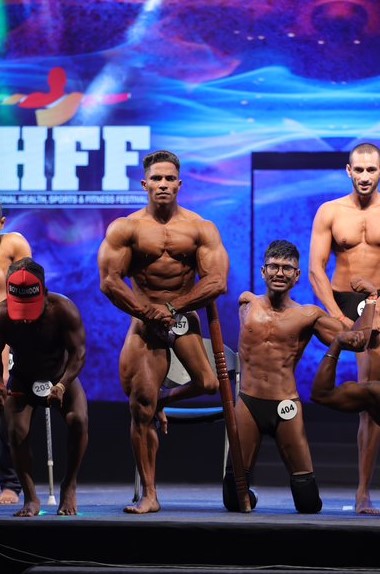
When most people think of bodybuilding, they picture large, muscular men and women with perfect physiques. However, there is a growing community of bodybuilders with disabilities who are proving that anyone can achieve their fitness goals, no matter what obstacles they face.
Bodybuilding with a disability requires extra dedication and determination, but the results can be just as impressive as those achieved by able-bodied athletes. These athletes often have to train harder and smarter in order to compensate for their limitations, but the hard work pays off in the form of increased strength, endurance, and confidence.
Whether you’re looking to compete in bodybuilding competitions or simply want to build a better physique, there’s no reason why a disability should hold you back. With the right attitude and approach, anyone can become a successful bodybuilder – disability or not.
5 Tips For bodybuilders with disabilities to stick to a fitness routine
A physical disability doesn’t have to mean the end of your bodybuilding dreams. Check out these five tips to help you stay on track:
Find a supportive gym community
Working out can be tough enough, but it’s even harder when you feel like you’re doing it alone. That’s why finding a supportive gym community is key for bodybuilders with disabilities. Look for a place where you feel comfortable and accepted, and where you can find others who are facing similar challenges.
Get creative with your workouts.
There’s no one-size-fits-all approach to fitness, so don’t be afraid to get creative with your workouts. If traditional weightlifting isn’t an option for you, try using resistance bands or your own body weight for resistance training.
Proper Equipped
Make sure you have the proper equipment and adaptive devices to make working out easier and more comfortable for you. If you have a disability, there are many ways that you can still lead an active lifestyle. You just need to make sure that you have the proper equipment and adaptive devices to make working out easier and more comfortable for you.
There are a few things to consider when choosing the right equipment for your workout routine. First, think about what type of exercise you want to do. Then, find equipment that is specifically designed for people with disabilities.
Get the right Coach
When you are looking for a coach, it is important to do your research and make sure that they have experience working with people with disabilities. This will ensure that they are knowledgeable about the challenges you may face and can help you overcome them. Talk to other bodybuilders with disabilities and see who they recommend. Getting a personal recommendation can be a great way to find a coach that is well-suited to your needs.
Set realistic goals for yourself.
If you’re just starting out, don’t try to set unrealistic goals like trying to bench press your bodyweight within a month. Instead, focus on small goals that you can realistically achieve. If you’re just starting out, don’t try to set unrealistic goals like trying to bench press your bodyweight within a month. Instead, focus on small goals that you can realistically achieve within that time frame. For example, aim to add 5-10 pounds to your bench press within a month. This may not seem like much, but it’s a realistic and achievable goal that will help you see progress and stay motivated.
Conclusion
As a bodybuilder with a disability, you are no stranger to challenges. But with the right attitude and support, you can overcome any obstacle. In this blog, we discuss the different types of bodybuilders with disabilities and offer tips on breaking barriers. From overcoming body image issues to building a supportive community, this guide has it all.


